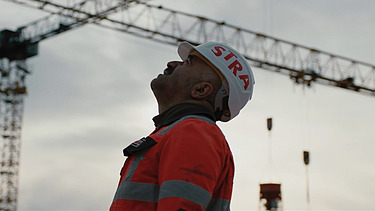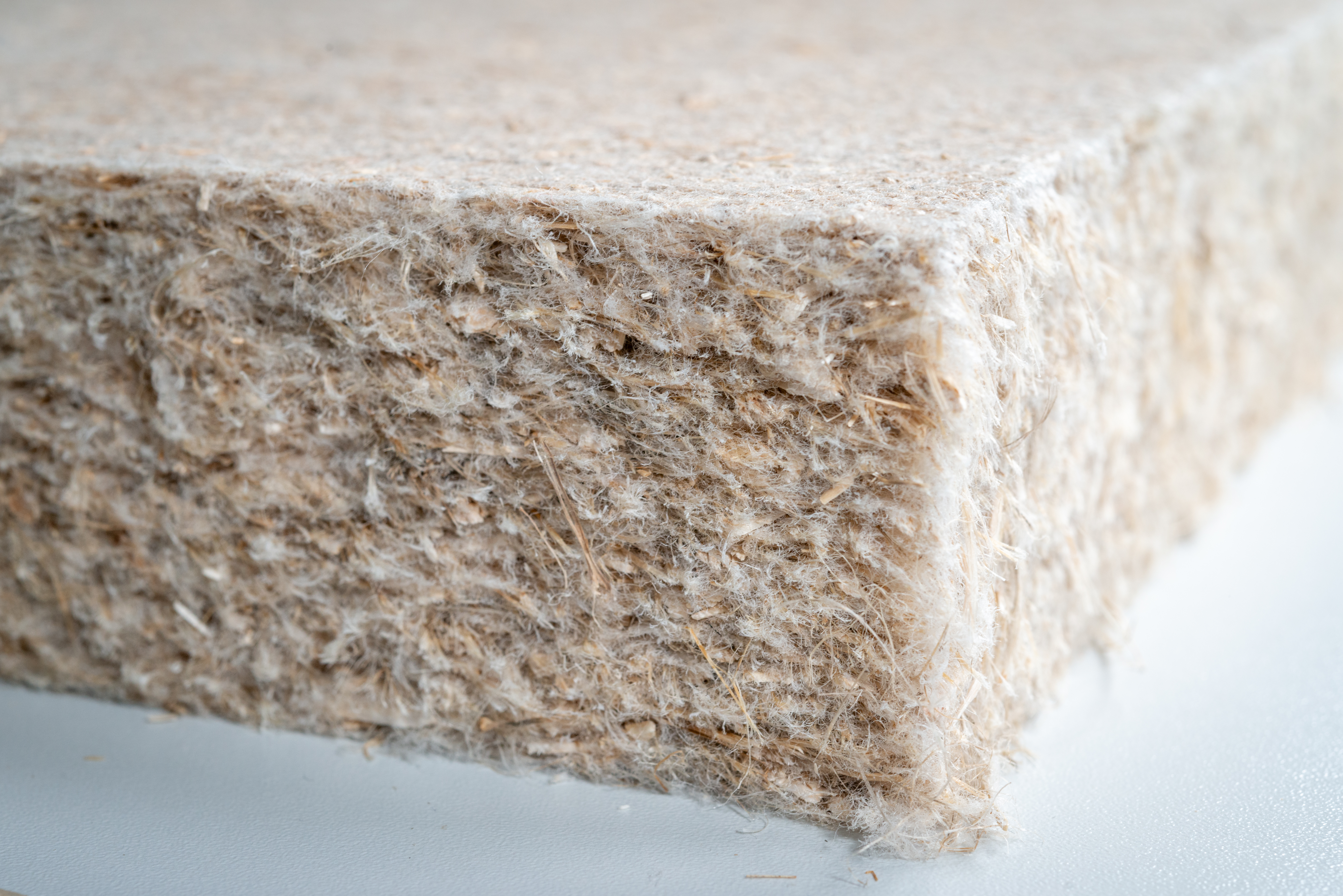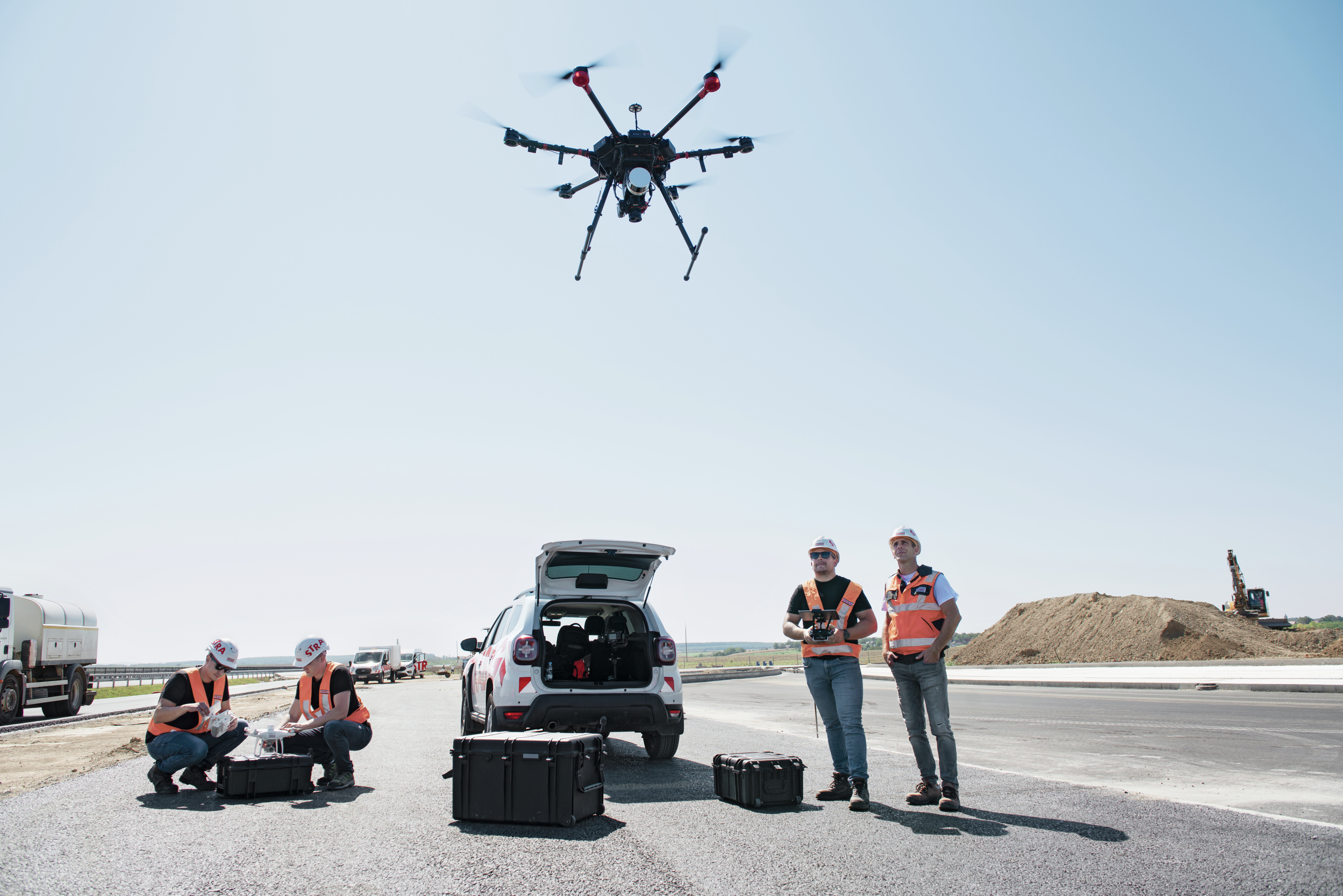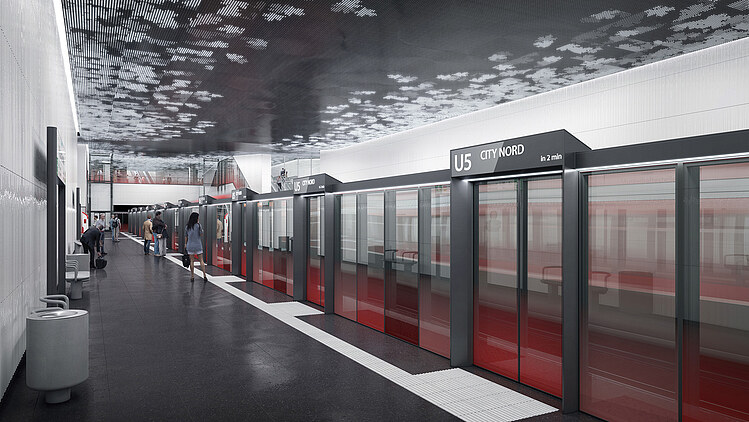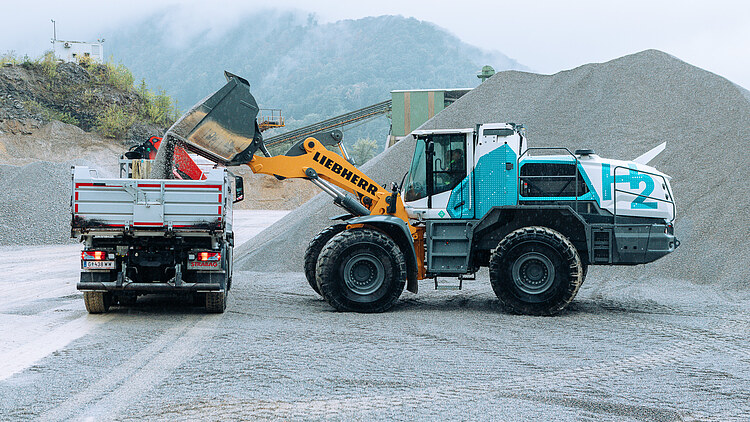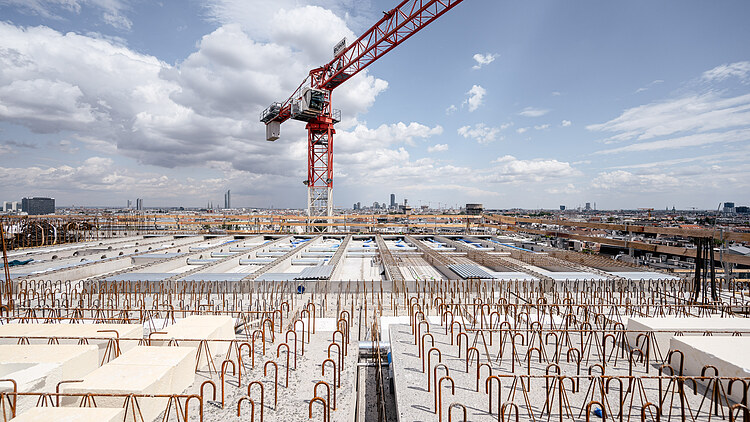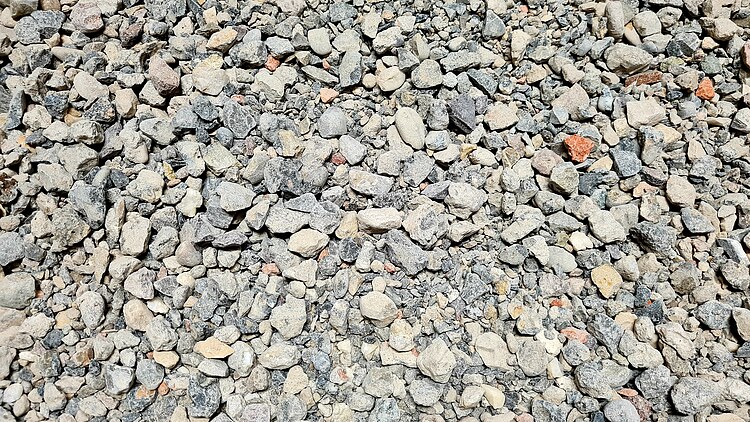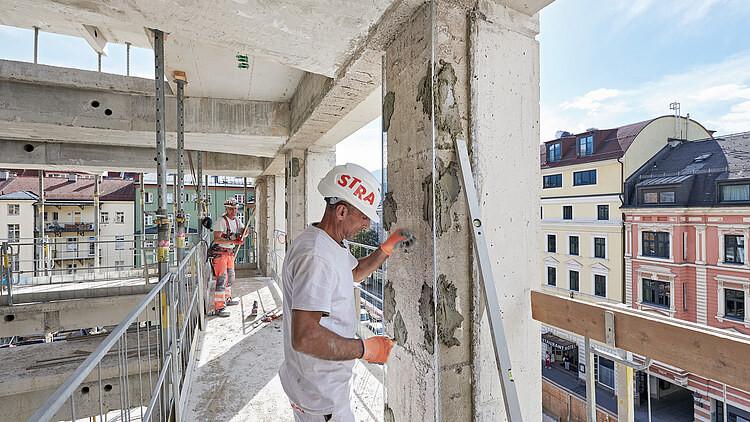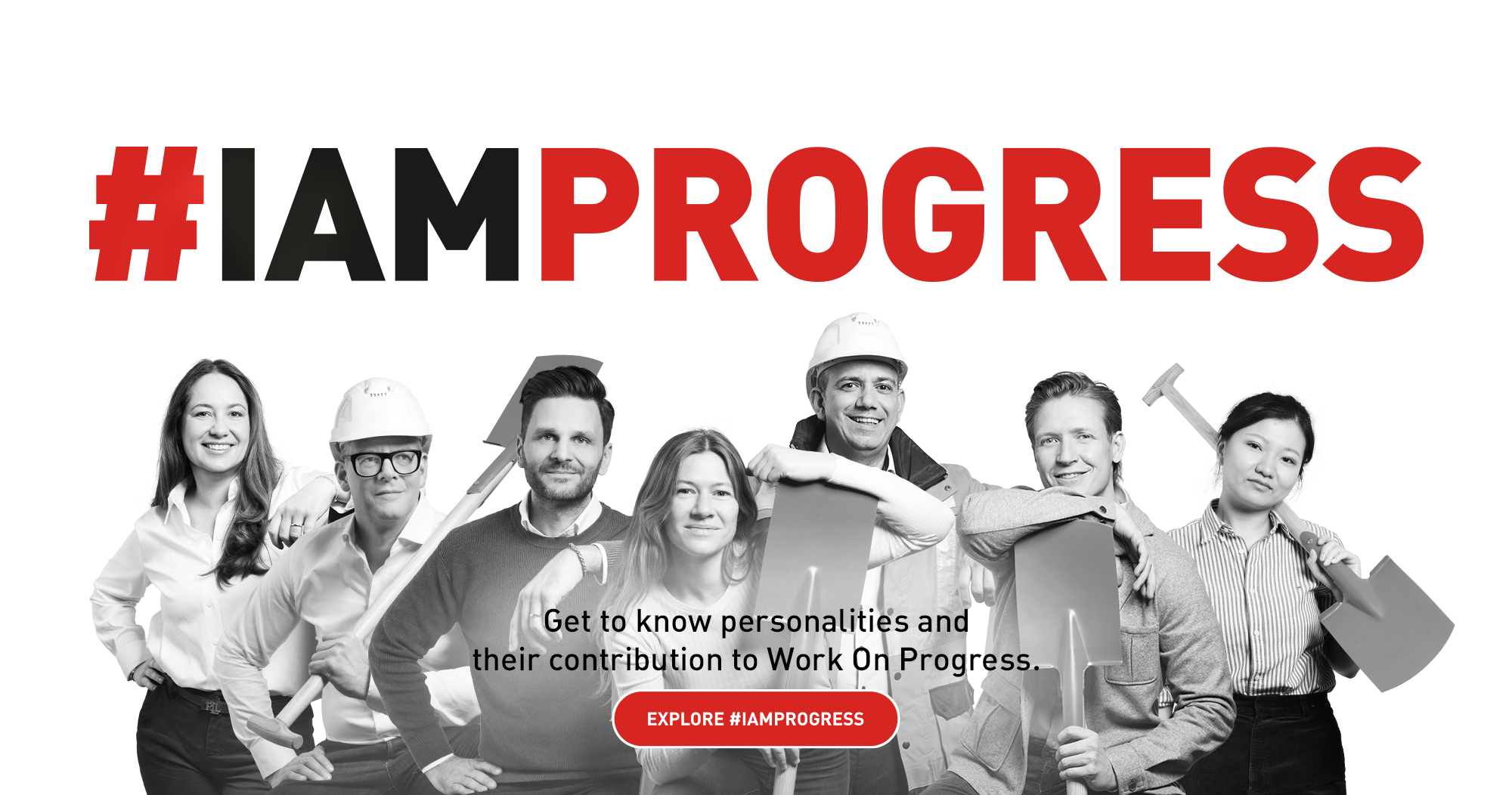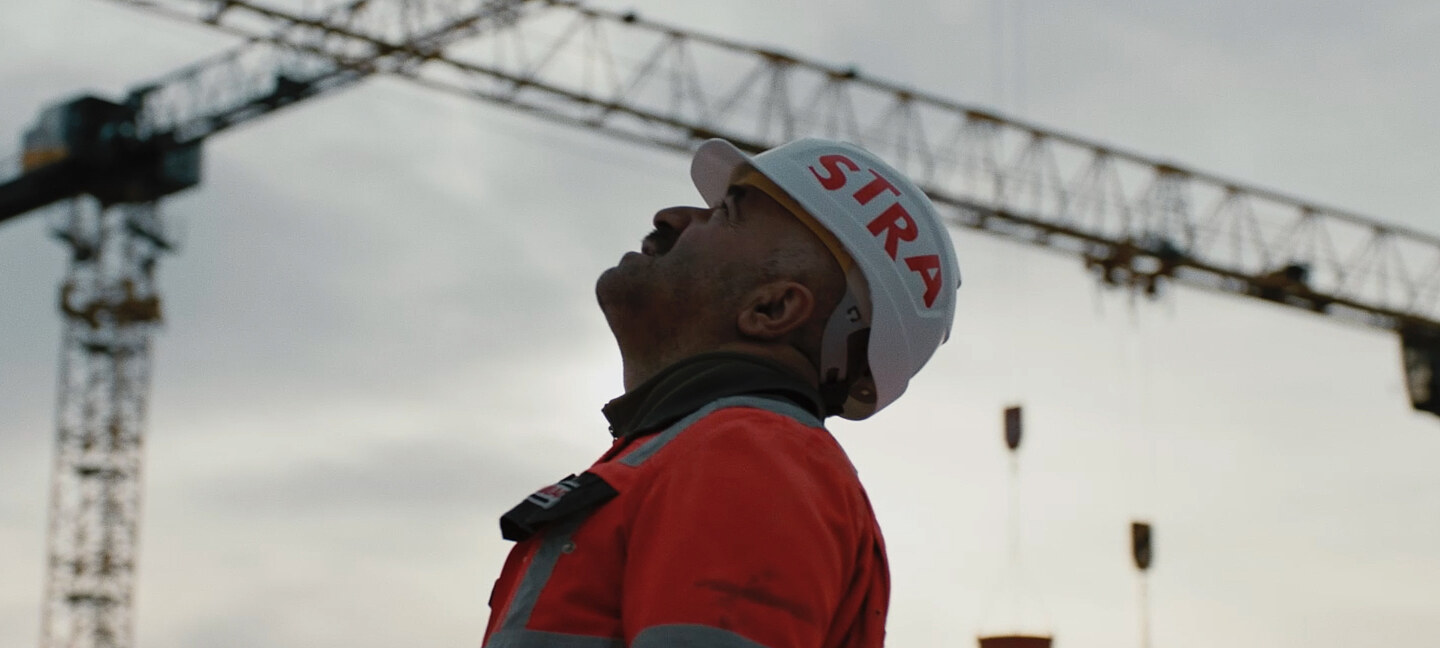
Work on Progress
Our journey into the future has begun.
People speak plainly on construction sites, so let's put it bluntly: We have a problem. The construction industry is responsible for 38 percent of CO2 emissions worldwide and accounts for half of the global demand for raw materials alone. That's why our industry must be part of the solution. Because we have one of the strongest levers for a better future. And if we move this lever, a lot will change. STRABAG is rethinking construction. Our clear goal, perhaps the most important in our company's history: We will become climate neutral by 2040.
We will not achieve this goal overnight. It is a process that requires technologies, some of which we first have to develop – and will. We need completely new ways of working that conserve resources and make us less dependent on fossil fuels. We all need to go down this path together. For our common mission: Work On Progress.
Three major topics. One even bigger goal.
More than almost any other sector, the construction industry has a responsibility to develop solutions to make its operations more climate-friendly and environmentally friendly. STRABAG sees the necessary change as a self-commitment – we are working on this progress with all our strenght. Work on progress – our lighthouse projects in three central strategic target areas show what we mean by this.
Progress does not happen. It is made.
And it is made by our STRABAG employees. It is the 86,000 who make the difference. They are the force that makes visions become reality.
